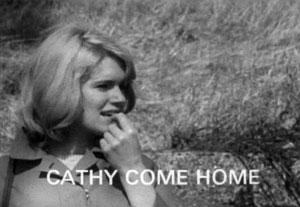
Stage And Screen
Glances at Undervalued Classics: Cathy Come Home (1966)
Moving, meaningful, insightful, and downright life altering, Ken Loach’s extraordinary 1966 British teleplay Cathy Come Home is one ... Read more

Moving, meaningful, insightful, and downright life altering, Ken Loach’s extraordinary 1966 British teleplay Cathy Come Home is one ... Read more
Lean, extremely mean and all around brilliant, Walter Hill’s 1989 feature Johnny Handsome is one of the best ... Read more